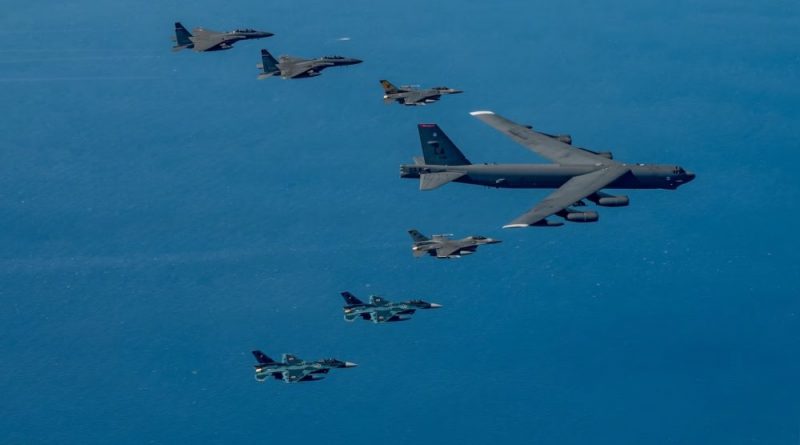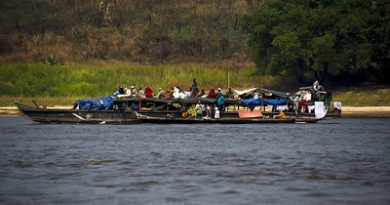US, Japan, and South Korea Hold First Joint Aerial Exercise
Ryan Campbell
Staff Writer
On October 22, South Korea, Japan, and the United States collaborated on an unprecedented trilateral aerial exercise. Fighter jets from both Japan and South Korea escorted the U.S. Air Force’s nuclear-capable B-52 bomber over the Korean Peninsula, reports Reuters. The exercise marks not only a new era of cooperation between the three countries, but also sends a powerful message to North Korea. Such an act was unthinkable mere months ago and shows an incredibly quick expansion in security cooperation in the region.
While trilateral maritime drills have been executed by the three countries before, says The Japan Times, combined aerial maneuvers were completed sequentially, where Japanese fighters would escort a U.S. bomber to a certain point before passing it off to South Korean fighters. This new step forward drew wide praise from each country’s military leaders. Per The Japan Times, Japan’s Defense Minister Minoru Kihara says the operation would strengthen future relations with Washington, D.C. and Seoul. Both U.S. Secretary of Defense Lloyd Austin and South Korean Defense Minister Shin Won-sik emphasized the importance of expanding trilateral cooperation.
While the U.S. has urged cooperation between Japan and South Korea for a long time, a new South Korean political landscape plays a key part in this step forward. In 2022, South Korea elected Yoon Suk Yeol as president, and the conservative leader quickly established a hard-line policy of no cooperation with North Korea. North Korea’s continuing push towards nuclear operations seem to have pushed the president to look past historical disputes and view Japan as a close ally instead, says ABC News.
The rise in this trilateral partnership comes against a background of rising North Korean aggression. Reuters reports that North Korea officially enacted a preemptive strike law in September 2022, and writes that North Korean leader Kim Jong Un has declared North Korea’s nuclear power irreversible and declines any talk of denuclearization. With this in mind, it seems only a matter of time before North Korea resumes nuclear testing. The U.S. has adopted an extended deterrence strategy towards North Korea, which, according to the U.S. Air Force Doctrine Publication, means to deter any nuclear action and to respond in kind should any aggressive action be committed towards an ally. Leaders of Japan, the U.S., and South Korea met in a summit at Camp David in August and agreed to bolster mutual defenses against North Korean nuclear threats, writes The Associated Press.
For its part, North Korea has bristled at the exercise. The Korea Herald reports that North Korea’s state run news agency has condemned the U.S. for sending nuclear capable bombers, calling it an “intentional provocative maneuver for nuclear war.”
While this exercise is certainly a step forward in South Korea-Japan relations, it is unlikely to have fortified them entirely. Resentment of Japanese colonization still runs deep in Korean society, and The Japan Times reports that multiple Korean military officials have expressed doubt over bilateral cooperation without the U.S. involved.
Image courtesy of Air & Space Forces Magazine



